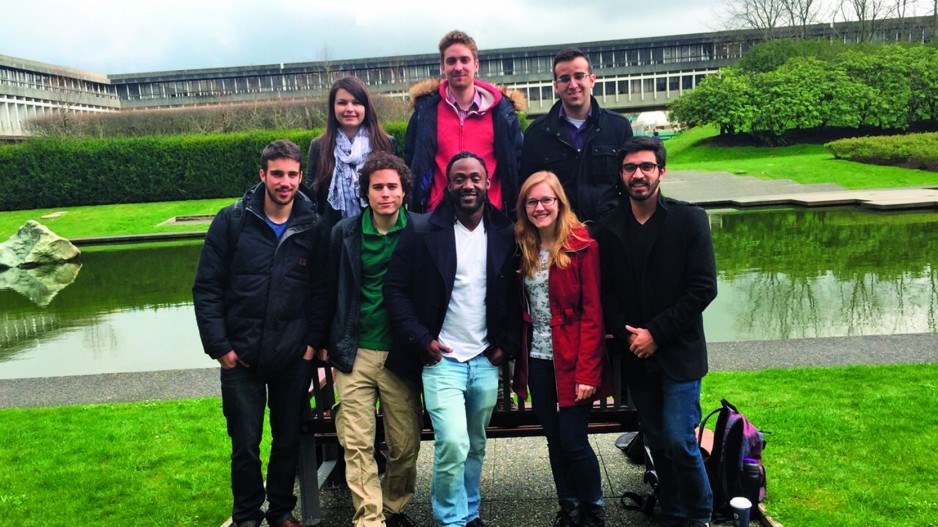The Canadian Society of Hospital Pharmacists estimates that 50% of Canadians do not take their prescription medications as prescribed.
Each year, drug non-compliance causes 10% of all hospital admissions, 25% of hospital admissions for seniors and 23% of all admissions to nursing homes. As well, adverse drug reactions are a leading cause of patient deaths. But a large portion of non-adherence is not deliberate. It’s caused by forgetfulness and memory problems among older patients, who are more likely to be affected by diseases such as Alzheimer’s and dementia. A program at Simon Fraser University’s (SFU) Surrey campus, called Technology Entrepreneurship@SFU (Tech e@SFU) looks to help solve this kind of medication problem through a new outlook on post-secondary education. Tech e@SFU, launched in 2012 and co-funded by the British Columbia Innovation Council, helps people like Surrey resident Rame Putris, a fourth-year mechatronics systems engineering student, develop ideas that are scientifically sound and entrepreneurially promising. The end result is ePione, a medication management system connected through mobile technology. The idea, about to head into the prototype development phase after a $7,000 grant through Tech e@SFU, allows patients to take multiple medications easily through an automated programmable device. It also alerts patients, their pharmacist or anyone else they program in when they’ve missed taking their pills. “My father is a pharmacist and a pharmacy manager,” said Putris. “One of my group members, Ane Tendo, he used to be a pharmacy technician for several years as well. And so we came up with the idea of solving the problem of medication non-adherence. This is a major issue in North America and in the world.” Tech e@SFU, launched through a $210,000 donation from philanthropist entrepreneur Ken Spencer and a matching contribution from the provincial government, links up the faculty of applied sciences and the Beedie School of Business to get ideas like ePione market-ready. Recently ePione also won two awards at SFU’s Opportunity Fest, held at the university’s Surrey campus. Sarah Lubik, a professor of innovation and entrepreneurship based out of SFU Surrey, said the idea is to get students like Putris to find real-world applications for their ideas, from the inception phase. “We encourage, and often insist, that our students get out of the classroom and find out about what people need and where they can make a difference by talking to experts and the community,” Lubik said. “PrimeTime Living, a company building a new retirement residence in White Rock, invited the students to come visit their office and ask questions from their staff and doctor regarding not only customer needs now, but the changing face of the retirement market.” Lubik said Surrey is becoming a perfect incubator for a new breed of business-savvy technology graduates, through multiple internal and external partnerships. “SFU Surrey really provides the perfect storm of enabling conditions for innovation,” she added. “The physical space and interdisciplinary programs encourage faculties and ideas to mix; the city and business community are actively engaged and supportive. Surrey’s Innovation Boulevard lends significant real-world inspiration. |
“Culture is also critically important to innovation, and SFU Surrey has the enabling culture of a workshop and a test bed to try new things. If students want to set up a pop-up maker space or fly drones on campus, the staff and faculty actively try to help to make it happen.”




